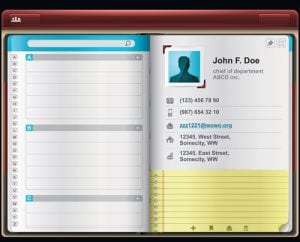Geo-Topical Authority is extremely important. Above all, in today’s marketplace is more global – and more competitive – than ever before. Any company that wants to stand out from its competitors and win the lion’s share of the market has to find ways to differentiate themselves.
Over the years, Google has tweaked its algorithms to give users localized search results. For that reason, you need to make sure that your company stands out as a geo-topical authority if you want to get organic traffic from Google.
What is Geo-Topical Authority?
The first thing you need to do is understand what geo-topical authority is. You may already know that building authority is a good way to establish trust and build your brand.

Geo-topical authority is authority that focuses on two specific areas:
1. Geographical authority – being the best (and best-known) at what you do in your particular geographical area.
2. Topical authority – being the most knowledgeable and authoritative in the areas that matter most to your target audience.
For example, a company that sells gardening equipment in Minneapolis would have to make sure that both its online and offline content contained references to its geographical area so that local customers know where to find them.
And likewise, the company would want to create and share authoritative content about gardening and related topics. Why? So that its core customers know that they can turn to the company for information about the topics that matter most to them: planting, fertilization, irrigation, pest control, and so on.
Ideally, every piece of marketing content you create should contain both of these things.
Qualities of a Website with Geo-Topical Authority
Now that you know what geo-topical authority is, let’s talk about what you need to do to acquire it. We’ll start with your company website since that is where most consumers turn for information about their favorite brands.
Your website is your online headquarters and where you should focus your efforts to build geo-topical authority. Every page of your website should work toward that goal. You need to have all of the following pages to do so.
Home Page
You already have a home page, like TLC homepage but it’s still a good idea to check to see if it’s helping you build geo-topical authority.
Your home page must include key information about your company, including a way to contact you immediately.
You also need an informative menu, intuitive navigation, and an easy-to-follow structure for consumers who want to browse your site.
NAP Listings
Next, you must list your name, address, and phone number . More commonly known as your NAP listing, on your site, and it must be identical on every page. That means double-checking the spelling and punctuation, and using the same abbreviations each time.

Why? First, because it helps customers find you; and second, because it helps Google connect all online mentions of you back to your site. Make sure to use crawlable HTML to make it easy for Google to crawl and index your site.
Customer Bill of Rights
A lot of companies miss this step, but it’s an important one. Your website should have a clearly-written Customer Bill of Rights to let customers know what kind of service to expect from you.
The companion document to the Bill of Rights is an internal Customer Service Policy that lets every employee know what you expect of them when they deal with the public.
Contact Us Page
Again, this is probably a page you already have, but you need to go over it and make sure that it is thorough. You need to have:
1. A complete NAP listing
2. A list of every way customers can contact you, including phone, email, social media, and online chat
3. A map
4. Detailed directions to your store
5. Photographs of the exterior of your store so people can spot it from the street
Some companies get the first two items on this list right and then miss the last three. Your Contact Us page needs to have all of them to build geo-topical authority.
Reviews and Testimonials
Even if your site has reviews , recommendations and testimonials on the home page, you should still have a dedicated page for these items. They help build social proof and geo-topical authority.
Your page should include a policy to let customers know what your guidelines are for reviews, and have a statement that states you will remove reviews that are abusive, threatening, or profane – as well as any that contain personal information about a customer, your staff, or any third party.
Products/Services adds juice to your Geo-Topical Authority
Your products and services page should contain descriptions of each item you sell or service you provide. Make sure to include prices, parameters, and images wherever possible.
You may also want to include reviews or any other information that helps you stand apart from your local competitors.
Other Pages
In addition to the pages listed above, you need:
1) Location-specific landing pages if you have more than one location
2) A store finder option
3) A FAQ page to answer the most common questions you receive and allows visitors to contact you
4) An About Us page to tell your company’s unique story
Each page should have a clear call to action to let visitors know what to do. If your site has all of these things, you’ll be well on your way to becoming a geo-topical authority.
Authoritative Content
So far we’ve covered the structure of your site, but what about the content?
Any company that wants to build geo-topical authority needs an authoritative blog. You should use your blog to answer the questions that your target audience is most likely to ask, and provide the information that they most want to know.

Each page of your site should be well-written and clear. It should have a singular purpose, which will help visitors to your site find what they want quickly.
Remember, too, that you should include high-quality content in a variety of formats. For example, you need compelling photographs and images, clear writing, and you may also want to include videos and infographics.
Building Offsite Geo-Topical Authority
Now let’s review what you need to do to build offsite geo-topical authority. It’s easy to control the information that appears on your company website, but what can you do around the internet to ensure that you have the geo-topical authority you want?
NAP Listings – get it right
Earlier, we mentioned the importance of NAP listings on your website. Every time you list your name and address, it must be identical.
It’s not uncommon for companies to assume that it doesn’t matter whether they use Avenue or Ave when they list their address – but it does. The more consistent your NAP listings are, the easier it will be for Google to present a coherent online image of your company.
When you go to review your NAP listings, make sure to check all of the following:
1. Online directories
2. Industry publications
3. Social media profiles
4. Review sites
If you find errors, you can either fix them yourself (as on a review site where you have claimed your profile) or email someone to fix them for you.
Backlinks for More Geo-Topical Authority
You might already know that building backlinks is important for SEO, but it’s a component of geo-topical authority too.
It can help you build geo-topical authority when you get your company listed in local and industry-specific directories. For example, you might want to join your local chamber of commerce so it can link to your site.
It’s also a good idea to build relationships with local publications and industry publications. A profile or article in an industry-specific magazine online can provide you with endless publicity and authority by virtue of linking to your website.
Social Media
Finally, you can use your social media accounts to build geo-topical authority. All of your social media profiles should contain vital information about your business, including your NAP listing, hours, directions to your store, and prices. Link every profile back to your website.
You should also post your geo-topical authority content on your social media pages. Social media can help you build a blog following, create excitement for new products, and publicize local events.
You can even use social media to host contests for local customers. A lot of companies use this tactic and it can be very effective, particularly if you encourage the creation of content that you can use in your marketing.
For example, you might ask customers to post photographs of themselves using or wearing your product, and then provide them with a free product or an opportunity to appear in an online video.
Conclusion – Geo-Topical Authority
Building geo-topical authority takes time, but it’s a worthwhile endeavor for any company that relies on local traffic to succeed. You may want to start by conducting a complete audit of your website to see what pages and content you need to add. From there, you can expand into offsite geo-topical authority – and then watch the leads and profits roll in.
